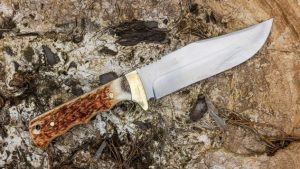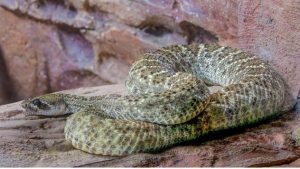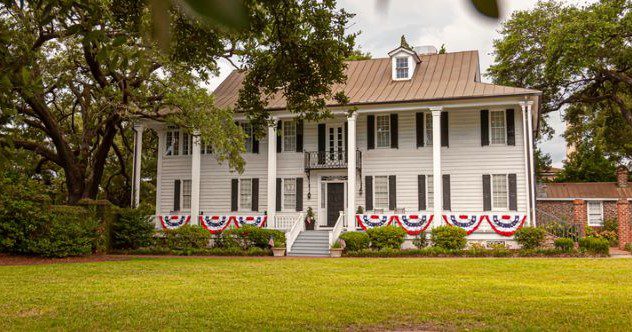Slang seems to be funny in pretty much every single era in which it is used. And it is especially funny after the slang terms of one generation go out of style and are then co-opted, replaced, and made light of by future generations. Think of all the slang terms of the past that seem goofy to us now: “cowabunga,” “totally tubular,” “on fleek,” “natch,” and a million and one other sayings that we don’t use anymore.
And then think of the current-day slang terms that will soon go out of style, too. (Sorry, Zoomers, but it’s true!) Everything from “on God” to “fr f” to “rizz” will soon be out of date and primed to be made fun of by future young people. And that’s what this list is about today, too! Only the slang we’re going to look at here is very old.
In this post, we’ll cover ten hilarious slang terms that were used in the American South before the Civil War that began in 1861. For various reasons (the war itself, the passage of time, etc.), these slang terms eventually died out. But way back in the day, these sayings were sprinkled in the Southern vernacular. And if you ask us, some of these terms are pretty darn funny.
Related: 10 Common Idioms with Unexpectedly Dark Origins
10 Hoppin’ Clods

If you were quick to realize that “clodhopper” sounds a whole heck of a lot like grasshopper, you’d be correct. That’s where the suffix “hopper” originated and how it was turned on its head. And a “clod” is like a dirt clod or a clump of mud. So, like many slang terms in the South during that period, its origin is an agricultural one.
Basically, at the time, a clodhopper was somebody who was a country bumpkin, a hick, or otherwise unrefined. It was used derisively to insult people for being a bit too “country,” as we might say today, rather than being more cosmopolitan and refined. Interestingly, at various times in its history, clodhopper has also come to mean a variety of other things. At one point centuries ago, it was used to indicate a blood clot. At another point, it meant a really heavy shoe (as in, one that “hops” over clods of dirt while walking through a farm field).
Either way, when it came to the pre-Civil War South, a clodhopper was somebody a little too much of a redneck for most people’s liking. Some people still use the term today, but it’s incredibly rare. Maybe we should bring it back! It sort of feels to us like redneck has run its course, you know?[1]
9 Fugglin’ Fracas

One of the weirder antebellum slang terms was undoubtedly “honey-fuggled.” We don’t blame you if you’ve never heard that one before. We hadn’t, either, and we had to triple-check its meaning before we put it on this list. Basically, it means to be hoodwinked, deceived, or enticed by flattery by a conman or an otherwise fraudulent person. If you get taken in by somebody promising to do something or offer something, and the whole thing turns out to be fake… well, you’ve been honey-fuggled!
The first time the term was documented as a thing people said was back in 1829, according to the Virginia Literary Museum. They noted that the term originated in Kentucky, based on their findings. It spread out a little bit from there, and over the next three decades or so, it was used all over the South. It mostly died out after the Civil War, though. By the early 20th century, it was extremely rare to hear the word in use. But it had a good long run in the South before the war. And it’s certainly a funny one to remember today![2]
8 Damned Devil!

You may know it as a “sunshower” when the rain is coming down from the sky while the sun is inexplicably shining above you. But in the American South, back in the day before the Civil War and even in the modern age, that phenomenon is known by a different phrase. When the sun comes out during a rainstorm, southerners then and now both like to say that “the devil is beating his wife.” It’s a pretty wild and intense phrase, isn’t it?
It makes sense on a symbolic level, perhaps. See, the phrase originated to mean that since the sun was shining, it was as though the “devil” was showing off all that fire, brimstone, and damnation he’s known for. And since it was raining, too, legend has it that those are the tears of his wife, who is crying out as she’s being struck. Grisly and macabre.
And surprisingly common across cultures! The European nations of France and Hungary both also have idiomatic phrases that are incredibly similar to that one when it comes time to describe sunshowers. The French say, roughly translated, that “the devil is beating his wife and marrying his daughter.” That’s creepy. And the Hungarians are known to say, “The devil is beating his wife with a walking stick.” But it all started in the antebellum South! Or at least that’s where the phrase was made incredibly popular and known to all. And now you know it, too![3]
7 No Smokin’

Back in the pre-Civil War South, tobacco was a big deal. It was a massive part of the economy and grew on pretty much every plantation that could sustain it. It also was a key part of the slavery situation in the South, which, of course, eventually helped lead to the Civil War. So, it makes sense that there was a lot of tobacco-related slang out there. The most common word of them all in that context was “lucifers.” These, as you might be able to guess, were matches! Yes, the kind of little wooden sticks you would strike to light up your cigarette!
The origin of the word “lucifers” popped up in the 1830s due to a brand name of matches made by the company of a man named Samuel Jones. Eventually, like what happened with Kleenex, the name transitioned to become used for any match that people used to light up their cigarettes. The name stuck for a while through the middle of the 19th century but eventually faded after that brand lost its prominence.[4]
6 Pickin’ Teeth

It’s not enough to just call a knife a knife—Southerners demand that you be more specific than that! And even if you were to be specific about which type of knife you had in mind (say, for example, a Bowie knife), that still wouldn’t be good enough! Back in the pre-Civil War days, Southerners used to have a very specific name for a Bowie knife. They would call the long, thin blade an “Arkansas Toothpick.” For some Southerners who felt badly about Missouri or liked Arkansas enough not to make fun of it, the alternate name for it was a “Missouri Toothpick.”
Of course, using a name like that for a knife is a not-so-nice way of insulting the people of those fine states as being backwoods hicks (or clodhoppers, perhaps!). After all, who would use a knife for a toothpick but a real redneck? The rest of us brush our teeth like modern, hygienic, cosmopolitan people! But back in the early 19th century, the genteel classes of the South looked down upon those kinds of unrefined folks, and they believed there were a lot of ’em in Arkansas. Thus, the term “Arkansas Toothpick” was born, and it’s been around with us ever since. (LINK 9) [5]
5 Down and Out in the South

Have you ever been depressed? Down in the doldrums? Sad about something in your life and unsure of how to make it better or what to do to improve it? Then you might have the “mollygrubs.” That’s a very strange term, but it’s a long-standing one that has been used in Arkansas and elsewhere in the South for quite a while. It first came into use long before that, though, in the late 16th century and very early 17th century, if you can believe it.
The English brought “mollygrubbing” over to the new world with them, and for whatever reason, its use really took hold in the South. Before the Civil War, for well over a century, Southerners lamented the “mollygrubbing” that went on when they were feeling despondent or otherwise sad about something. It particularly became popular in the Appalachian Mountains and nearby regions of the upper South. It’s a pretty rare term today, but it is still used occasionally.[6]
4 Let Sleeping Snakes Lie

Two centuries ago in the Deep South, when somebody was making such a ruckus that they were disturbing absolutely everybody around them, they were said to be “waking snakes.” The slang phrase is simple but provides an effective symbol to imagine whenever it’s said. If somebody is hopping around, yelling, screaming, jumping, and generally causing so much hubbub that they are disturbing everybody around them, they are said to be able to “wake snakes” that are slumbering underground, in holes, and in quiet, cozy places near your feet.
The phrase was pretty popular in the antebellum era. It was so widely known that it even made its way into several dictionaries documenting the colorful phrases employed by Southerners at the time. And if you’re anything like us, you probably think snakes are scary, right? So the phrase is a good reminder to keep it calm and quiet in your life and NOT wake any snakes. We don’t need that creepy, crawly trouble slithering around at our feet![7]
3 Toad Talk

Surely, you’ve heard the phrase “big fish in a small pond.” That’s used to denote somebody who is important or influential in a small town or a small community. Rather than move to a larger community or try their hand at something more challenging, they are content to stay where they are and enjoy the benefits of having social influence over a smaller subset of other people. Well, back in the pre-Civil War South, Southerners had their own unique phrase that meant exactly that!
Instead of talking about fishes and ponds, Southerners would say somebody is “the biggest toad in the puddle.” Of course, in many places in the South, there were (and still are) a lot of toads. So it was a uniquely Southern style of speaking. And the slang term was used derisively when it was employed.
In one way, it meant the same thing as the “big fish in a small pond” phrase that we use today. In addition, it was meant to be a backhanded insult to somebody who believes themselves to be very important or influential when, in actuality, they are a small-time nobody with nothing but a vastly inflated sense of self![8]
2 Darn Good!

The next time you eat something really good or really tasty, make sure you call it what it was: larrupin’ good! The phrase “larruping” is a Texas-slash-Oklahoma-slash-Arkansas thing that first rose to popularity before the Civil War. Then, it really became prominent after the Civil War. Basically, it means delicious or excellent. As we noted, it is most often used in the context of food, and people have long used it to refer to extremely tasty or delicious morsels.
The phrase still has some pull in the modern era, too. Every so often, you’ll hear somebody use that word if you are deep down in Texas or somewhere in rural Arkansas or Oklahoma. But it was mostly a popular phrase back in the late 19th century and the very early 20th century. We could bring it back, though![9]
1 The Quick Step

When you’ve got to go, you’ve got to go. Everybody knows what that means and the context in which that comes. Better find a bathroom fast! And in the pre-Civil War South, things were no different. When it came to diarrhea, there was one big euphemism for it: locals knew it as “the quick step.” And in time, beyond that, there were two other ways that Southerners referred to that perilous moment when nature called unpredictably and intensely. They termed those awful runs to the bathroom alternately the “Tennessee Trots” or the “Virginia Quick Step.”
Obviously, those names are pretty amusing. We can all picture somebody sprinting to the bathroom or outhouse to take care of urgent business. But interestingly, those two slang terms actually had a serious backstory, too. See, during the Civil War, soldiers on both sides were horribly plagued by diarrhea. Most often caused by dysentery and other medical issues, as many as 1.5 million Union Army soldiers suffered from bouts of diarrhea during the Civil War.
And it was even worse in the South, sadly. In the Confederate Army, dysentery and its accompanying violent cases of diarrhea were the two most common ailments reported by soldiers in the field. In turn, those difficult diseases were made worse by the terrible diets that soldiers had while fighting. And, of course, it didn’t help that they often drank dirty and contaminated water. So, while the Tennessee Trots and the Virginia Quick Step are both pretty funny slang terms, they did refer to a serious and brutal condition.[10]
